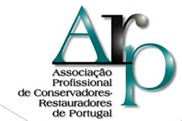Safeguarding cultural heritage trough technical quality of Conservation-restoration interventions To: Your Excellency the Minister of Culture, Your Excellency the Director of the Directorate-General for Cultural Heritage, Members of the Commission for Culture, Communication, Youth and Sport of the Assembly of the Republic Recently, in 2017, the Council of Europe identified cultural heritage as a non-renewable resource, considering that its conservation, protection, restoration and enhancement is a responsibility of society as a whole, including those with administrative and legislative responsibilities. In 2018, with the celebration of the European Year of Cultural Heritage, the sustainable management of cultural heritage became a strategic vector for the 21st century. In this context, the Directorate-General for Education, Youth, Sport and Culture of the European Commission (DGEAC) considered that: (1) ‘Heritage professionals require extensive skills, in-depth knowledge and a strong ethical basis to enable them to take the lead in managing and safeguarding cultural heritage and its value, so that cultural heritage can be transmitted with integrity and be appreciated by all, now and in the future’ (Voices of Culture on Skills Knowledge transfer in emerging and traditional for heritage professions). (2) Those with professional expertise need their existing profiles defined in relation to necessary: education, competences, access, practical application of skills, and responsibilities towards cultural heritage (Voices of Culture on Skills Knowledge transfer in emerging and traditional for heritage professions). The Council of Europe defines Conservation-Restoration as a discipline based on scientific and humanistic knowledge for the purpose of sustainably preserving the physical integrity and history of cultural heritage, extending its life without compromising its authenticity, intrinsic value and meaning. It is also characterized by the integration of theoretical knowledge and practical skills, and by the ability to systematically assess ethical and aesthetic issues, and it is the fact that they have a specialized higher education that provides Conservation-Restoration professionals with skills to intervene in cultural heritage (Strategy 21- Facsheets). E.C.C.O. (European Confederation of Conservators-restorer’s Associations) and ENcoRE (European Network for Training in Conservation and Restoration) have harmonized the skills necessary for the qualification of the “Conservator-restorer”, its access to the profession and its title at European level, which refers only to a professional with a five-year academic background exclusively in Conservation-Restoration. In the context of the cultural heritage professions, the Conservator-Restorer is a paradigm in that he has the academic profile necessary for access to the profession, in that he allows the mutual recognition of professionals with identical training in the context of European mobility, and in that he presents a code of ethics and ethics. On the other hand, from a legal point of view, the Portuguese State lacks recognition and formal definition of the profile of this professional, despite having introduced in 1980 (Decree-Law 245 of 22 July) concepts that are in absolute harmony with the current European political strategy for culture. In 2001, Decree-Law no. 55 on the careers of Museology and Conservation-Restoration sought to respond to the principles considered today to be fundamental for the exercise of quality in the cultural heritage professions, recognizing that the Conservator-restorer had a specific career within the framework of the specificity of functions and competences he performs. Almost two decades later, the Portuguese Law on Cultural Heritage [Law no. 107/2001, of 8 September] and the Framework Law on Portuguese Museums [Law no. 47/2004, of 19 August] have not yet been fully regulated, nor do they ensure full compliance with the functions of the professionals who intervene in cultural heritage, namely the Conservator-restorer, due to a lack of governmental strategy and decisions. The lack of definition by the State, in the form of a legal diploma, of the qualifications necessary for the profile of these specialized professionals, nor of the training necessary for the performance of these functions, has been translating into a discretionary nature that is harmful to cultural heritage, since it transfers this responsibility to the contracting entities that often appoint technicians without the qualifications and without the appropriate competences, and there are no clear and defining limits and borders in the tendering processes for Conservation-Restoration (which means that everyone can do everything, in a scattering, free and unaccountable manner). Given its unique, singular and irreplaceable nature, cultural heritage is a public good, and its protection and sustainability as an undeniable resource for the economic and social development of the country will only be guaranteed if: – The regulation of the Law on Cultural Heritage and the Framework Law on Portuguese Museums to be completed, identifying the profile of the Conservator-restorer in its mission as the most directly acting professional in cultural heritage, legally defining its title, qualifications and competences, and clearly identifying the responsibilities assigned to by the State. This petition seeks to claim this definition from the political authorities and administrative bodies with responsibilities for the protection of the Portuguese heritage, in order to complete a legislative gap with serious consequences for the cultural heritage and, inherently, for society as a whole. Follow the link to sign to the petition: https://peticaopublica.com/pview.aspx?pi=PT92359

